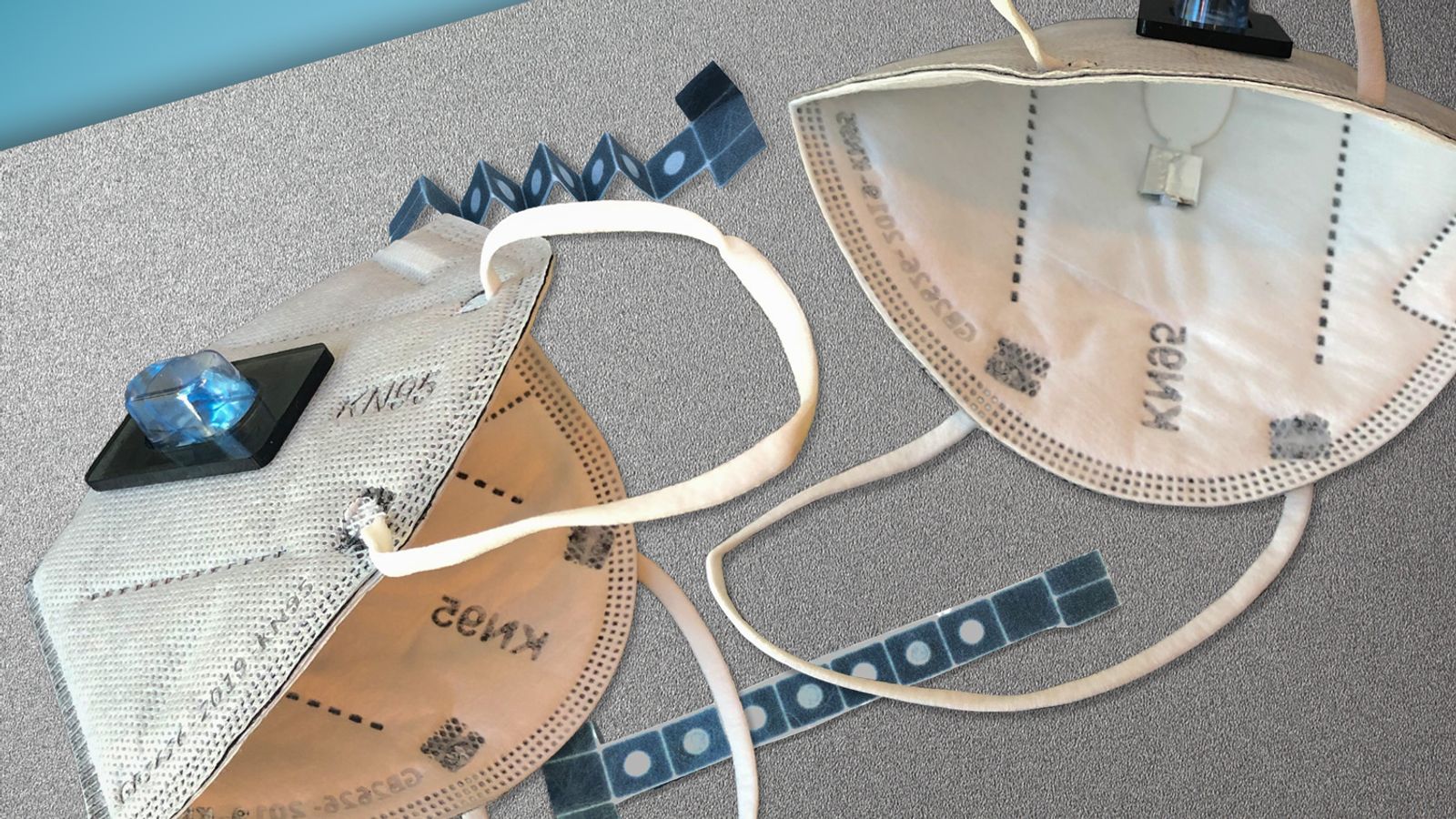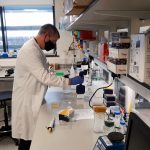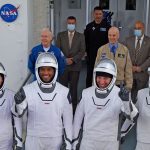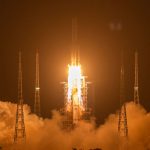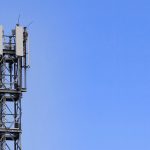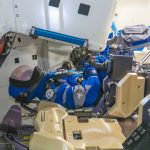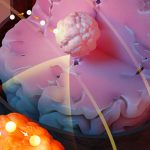Scientists have developed a prototype face mask that can diagnose whether its wearer has COVID-19 within 90 minutes.
The tiny, disposable sensors designed by engineers at the Massachusetts Institute of Technology and Harvard could potentially be adapted to detect other pathogens in the future.
The key technology is in the sensor which is based on freeze-dried synthetic genetic circuits that react with a particular target molecule – in this case the genetic material of the coronavirus itself.
Latest COVID updates from the UK and around the world
“This test is as sensitive as the gold standard, highly sensitive PCR tests, but it’s as fast as the antigen tests that are used for quick analysis of COVID-19,” said Peter Nguyen, one of the lead authors on the study of the technology.
Freeze-drying the synthetic biology sensor means that it remains stable until it is rehydrated.
The mask includes a small reservoir of water that is released when the wearer pushes a button to perform the test, and then the sensor analyses droplets from the wearer’s breath to detect whether there are any SARS-CoV-2 particles.
The results of the test are only displayed on the inside of the mask, for user privacy.
Additional prototypes developed by the team include sensors placed on clothing which could detect exposure from the environment, and the sensors could be used to detect other pathogens such as influenza, Ebola, and Zika.
The team has even developed sensors that can detect organophosphate nerve agents, such as the novichok weapon used in Salisbury in 2018 and to target Putin’s most prominent political opponent Alexei Navalny in 2020.
“Through these demonstrations we have essentially shrunk down the functionality of state-of-the-art molecular testing facilities into a format compatible with wearable scenarios across a variety of applications,” added Luis Soenksen, another lead author.
“We’ve demonstrated that we can freeze-dry a broad range of synthetic biology sensors to detect viral or bacterial nucleic acids, as well as toxic chemicals, including nerve toxins,” added Professor James Collins, the senior author of the study,
“We envision that this platform could enable next-generation wearable biosensors for first responders, health care personnel, and military personnel,” Professor Collins said.
